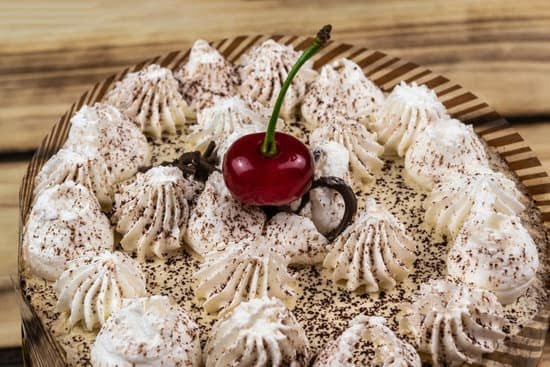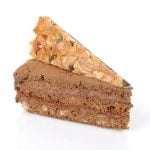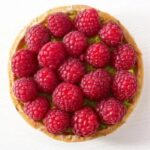Are you looking to learn how to decorate a cookie cake with icing? Decorating a cookie cake can be a fun and creative way to add a personal touch to any special occasion. From birthdays to holidays, a beautifully decorated cookie cake can be the perfect centerpiece for any celebration. In this article, we will explore the various types of icing for decorating, as well as the techniques and tips for creating stunning designs on your cookie cake.
Cookie cakes are a popular alternative to traditional cakes, offering a delicious combination of soft, chewy cookie and rich, creamy frosting. They come in various sizes and shapes, making them versatile for any event. Whether you’re baking your own or purchasing one from a bakery, knowing how to decorate a cookie cake with icing will take your dessert to the next level.
Before diving into the world of cookie cake decoration, it’s essential to understand the different types of icing that are commonly used. With so many options available, choosing the right icing can make all the difference in achieving your desired design.
Additionally, preparing the cookie cake for decorating is an important step that shouldn’t be overlooked. In the following sections, we will cover basic and advanced icing techniques, as well as tips and tricks for flawless decorations on your cookie cake.
Types of Icing for Decorating
When it comes to decorating a cookie cake with icing, choosing the right type of icing is crucial. There are several types of icing that can be used for decorating a cookie cake, each with its own unique properties and uses.
Buttercream Icing
One of the most popular choices for decorating cookie cakes is buttercream icing. This type of icing is smooth, creamy, and easy to work with, making it perfect for piping and creating intricate designs. It can also be easily colored using gel food coloring, allowing you to create vibrant and eye-catching decorations on your cookie cake.
Royal Icing
Another common choice for decorating cookie cakes is royal icing. This type of icing dries hard, making it ideal for creating 3D decorations and intricate designs that require precision. Royal icing can also be colored using gel food coloring and thinned out to create different consistencies for flooding and outlining.
Fondant
Fondant is a versatile type of icing that can be rolled out into thin sheets and used to cover the entire surface of a cookie cake. It can also be shaped and molded into various decorations, such as flowers and figures, adding a creative touch to your cookie cake.
No matter which type of icing you choose for decorating your cookie cake, it’s important to consider the desired look and feel of your decorations, as well as the taste preferences of your intended audience. Each type of icing has its own unique characteristics that make it suitable for different decorating techniques. Understanding these differences will allow you to choose the best type of icing for your specific design needs when decorating a delicious cookie cake.
Preparing the Cookie Cake for Decorating
Before you can start decorating your cookie cake with icing, it’s important to prepare the surface properly. First, ensure that your cookie cake has completely cooled before attempting to apply any icing. This will prevent the icing from melting and running off the cake. If you’re in a hurry, you can even place the cookie cake in the refrigerator for a few minutes to speed up the cooling process.
Next, it’s crucial to smooth out any bumps or uneven areas on the surface of the cookie cake. You can do this by gently pressing down on any raised areas with your hands or using a spatula to even out the surface. A smooth surface will make it much easier to create clean and precise icing decorations.
Finally, consider adding a thin layer of frosting or glaze to the top of the cookie cake before applying your decorative icing. This will act as a base layer and help the decorative icing adhere better to the surface of the cake. Additionally, a thin layer of frosting or glaze can also add extra flavor and moisture to your cookie cake, making it even more delicious.
By following these simple steps, you can ensure that your cookie cake is ready for decorating with beautiful and professional-looking icing designs. With a smooth and well-prepared surface, you’ll be able to create stunning decorations that are sure to impress all of your friends and family.
Overall, learning how to decorate a cookie cake with icing is an enjoyable experience that can yield impressive results if done correctly. With time and practice, you’ll become more confident in your skills and creativity when it comes to decorating these delectable treats.
Basic Icing Techniques for Cookie Cakes
When it comes to decorating a cookie cake with icing, there are several basic techniques that can help you achieve a professional-looking finish. Whether you’re a beginner or just looking to brush up on your skills, these simple icing techniques will ensure that your cookie cake looks as good as it tastes.
Spreading Icing
The most basic technique for decorating a cookie cake with icing is simply spreading the icing evenly over the surface of the cookie cake. To do this, start by placing a dollop of icing in the center of the cookie cake and using a spatula to gently spread it out towards the edges. Take care to apply even pressure to ensure that the icing is spread out smoothly and evenly.
Piping Icing
Piping icing is another fundamental technique for decorating cookie cakes. To pipe icing, fill a piping bag fitted with a small round tip with your desired icing consistency and gently squeeze the bag to pipe designs onto the surface of the cookie cake. This can be used to create borders, letters, or intricate designs on your cookie cake.
Texturing Icing
Texturing icing can add dimension and visual interest to your cookie cake decorations. This technique involves using tools such as combs or spatulas to create patterns or textures in the icing before it sets. Simply drag your chosen tool through the freshly applied icing to create unique designs and effects.
By mastering these basic icing techniques for decorating cookie cakes, you’ll be well on your way to creating beautiful and delicious treats that are sure to impress any crowd.
Advanced Icing Techniques for Cookie Cakes
Once you’ve mastered the basic techniques for decorating a cookie cake with icing, you may want to take your skills to the next level with some advanced icing techniques. These techniques can help you create more intricate and detailed designs on your cookie cakes, making them truly stand out at any event or celebration.
Here are some advanced icing techniques to consider:
- Piping: Piping is a technique that involves using a piping bag and different tips to create intricate designs on the surface of the cookie cake. This could include creating delicate flowers, intricate patterns, or even writing messages in cursive. With practice, you can achieve professional-looking results that will impress anyone who sees your beautifully decorated cookie cakes.
- Royal Icing Transfers: Royal icing transfers are decorations that are made in advance using royal icing and then placed onto the surface of the cookie cake once they have dried. This technique allows you to create detailed designs, such as flowers, butterflies, or even entire scenes, without having to freehand them directly onto the cookie cake.
- Stenciling: Stenciling is a great way to add intricate patterns and designs to your cookie cake with ease. Simply place a stencil over the surface of the cookie cake and use a contrasting colored icing to fill in the design. Once the stencil is removed, you’ll be left with a beautifully detailed pattern that will make your cookie cake look professionally decorated.
By incorporating these advanced icing techniques into your decorating repertoire, you can take your cookie cakes to new heights and impress everyone with your intricate and professional-looking designs.
Tips and Tricks for Perfect Icing Decorations
Perfecting your cookie cake decorating skills can be a fun and rewarding experience. However, it requires some tips and tricks to achieve the perfect icing decorations. Whether you’re new to decorating cookie cakes or looking to improve your skills, there are several techniques that can help you create beautiful and professional-looking designs.
Firstly, invest in quality icing tools such as piping bags, tips, and spatulas. These tools can make a world of difference in creating intricate and detailed designs on your cookie cake. Additionally, practicing different icing techniques such as piping borders, creating rosettes, or writing messages with icing can help you improve your skills over time.
Another important tip for perfecting your icing decorations is to ensure that your cookie cake is completely cooled before you begin decorating. Warm cookies can cause the icing to melt or become runny, making it difficult to create clean and precise designs. Additionally, consider using a crumb coat of icing before adding the final decorations to ensure a smooth and even surface for decorating.
Lastly, don’t be afraid to get creative with your icing decorations. Experiment with different colors, textures, and designs to personalize your cookie cake and make it truly unique. Adding edible glitter, sprinkles, or fondant decorations can take your cookie cake decorating skills to the next level.
| Tips for Perfect Icing Decorations | Details |
|---|---|
| Invest in quality icing tools | Quality tools can make a difference in creating intricate designs |
| Ensure cookie cake is completely cooled | Cool cookies prevent melting or runny icing during decoration |
| Get creative with decorations | Experiment with colors, textures, and additional edible decorations |
Adding Color and Decorations to Icing
When it comes to decorating cookie cakes with icing, adding color and decorations can take your creation to the next level. Whether you’re making a cookie cake for a birthday, holiday, or special occasion, adding vibrant colors and creative designs can make your dessert stand out. Here are some tips for adding color and decorations to icing that will impress your friends and family:
- Choose the right food coloring: When it comes to coloring icing, using gel food coloring is recommended because it produces more vibrant colors without altering the consistency of the icing.
- Use piping bags and tips: To create intricate designs and detailed decorations on your cookie cake, invest in a set of piping bags and tips. These tools allow for greater control over the flow of icing and can help you achieve professional-looking designs.
- Experiment with different techniques: From simple swirls and dots to more complex flowers and lettering, there are countless techniques you can use to decorate your cookie cake with icing. Take the time to practice different techniques and find what works best for you.
In addition to using food coloring and piping tools, you can also enhance the appearance of your cookie cake by adding edible decorations. Sprinkles, edible glitter, fondant shapes, and chocolate shavings are just a few examples of decorative elements that can add texture, sparkle, and visual interest to your icing creations.
To ensure that your decorations adhere securely to the icing, consider applying them while the icing is still fresh or slightly wet. This will help prevent them from sliding off or losing their shape once the icing sets. And don’t be afraid to get creative – experiment with different combinations of colors, textures, and decorative elements to bring your cookie cake design to life.
Troubleshooting Common Icing Decorating Issues
Decorating a cookie cake with icing can be a fun and creative process, but it’s not without its challenges. Here are some common issues that may arise when decorating a cookie cake with icing, along with some tips on how to troubleshoot them.
One common problem when decorating a cookie cake with icing is air bubbles in the icing. These can create an uneven and unattractive surface on the cake. To prevent this issue, make sure to thoroughly mix your icing before using it, and use a toothpick or small spatula to gently release any air bubbles that may have formed on the surface of the icing.
Another common issue is icing that is too runny or too thick. If your icing is too runny, try adding more confectioners’ sugar until it reaches the desired consistency. On the other hand, if your icing is too thick, you can add a small amount of milk or water to thin it out. It’s important to test the consistency of your icing before using it to decorate your cookie cake.
Lastly, streaks or smudges in the icing can be frustrating when trying to achieve a smooth and even finish. To avoid this problem, make sure that your cookie cake has completely cooled before applying the icing. Additionally, using a offset spatula or bench scraper can help create a smooth surface and prevent streaks in the icing.
Overall, troubleshooting common icing decorating issues requires patience and practice. By paying attention to these common problems and implementing these troubleshooting tips, you’ll be able to perfect your cookie cake decorating skills in no time.
| Common Issue | Troubleshooting Tips |
|---|---|
| Air bubbles in icing | Thoroughly mix icing before using and gently release air bubbles with a toothpick |
| Runny or thick icing | Add confectioners’ sugar to thicken or milk/water to thin out as needed |
| Streaks or smudges in the icing | Allow cookie cake to cool completely before applying the icing.use an offset spatula or bench scraper for smoother application. |
Conclusion and Tips for Perfecting Your Cookie Cake Decorating Skills
In conclusion, learning how to decorate a cookie cake with icing can be a fun and rewarding way to show off your baking skills. Whether you’re a beginner or more experienced baker, there are a variety of icing techniques that can take your cookie cake from ordinary to extraordinary. From basic outlining and flooding to advanced techniques like piping, there are endless ways to express your creativity through icing decorations.
To perfect your cookie cake decorating skills, it’s essential to start with the right type of icing. Understanding the various types of icing and their uses, as well as how to prepare the cookie cake for decorating, is crucial for achieving professional-looking results. Additionally, mastering the art of adding color and decorations to icing will help take your cookie cakes to the next level.
As you continue to hone your skills in decorating cookie cakes with icing, don’t be afraid to experiment and try out new techniques. Keep in mind that practice makes perfect, and it’s okay to encounter some common decorating issues along the way.
By troubleshooting these issues and learning from mistakes, you’ll become more confident and proficient in creating beautifully decorated cookie cakes. So roll up your sleeves, get your favorite piping tips ready, and let your imagination run wild as you explore all the possibilities of decorating a delicious cookie cake with icing.
Frequently Asked Questions
Can You Decorate a Cake With Cookie Icing?
Yes, you can decorate a cake with cookie icing. Cookie icing is thicker than regular frosting, making it perfect for decorating because it holds its shape well and has a smooth finish.
What to Decorate Cookie Cake With?
When decorating a cookie cake, you can use a variety of toppings such as sprinkles, edible glitter, chocolate chips, nuts, or even fresh fruit. These toppings add texture and flavor to the cookie cake.
How Do You Pipe Icing on a Cookie Cake?
Piping icing on a cookie cake requires the use of a pastry bag or piping bag with a decorative tip. Fill the bag with the desired icing, hold it at the right angle, and apply steady pressure while guiding the tip to create your desired design on the cookie cake.
With practice, you can create beautiful designs such as flowers, borders, or lettering.

Welcome to our cake decorating blog! My name is Destiny Flores, and I am the proud owner of a cake decorating business named Cake Karma. Our mission is to provide delicious, beautiful cakes for all occasions. We specialize in creating custom cakes that are tailored specifically to each customer’s individual needs and tastes.





